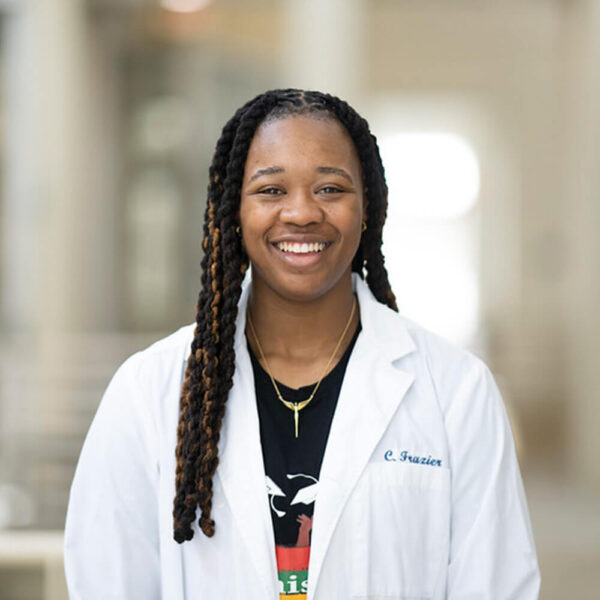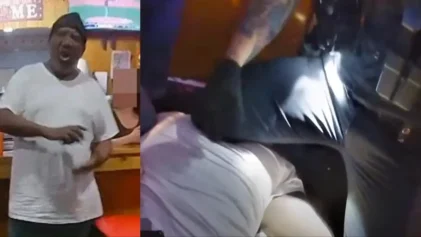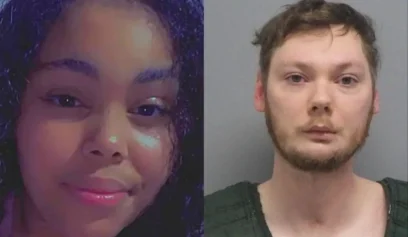Chantrell Frazier has made history as the first Black woman to earn a doctorate in biochemistry at Florida International University, but the future professor said she could not achieve the accomplishment without certain priorities in place.
The 5’11” basketball player with chest-length dreadlocks, who wears a Black history T-shirt under her white lab coat, said it was pivotal to complete her undergrad at a Historically Black College and University. Frazier started her higher education path as a student-athlete at Savannah State University.

The Tampa native chose the school not only because it was her grandparents’ alma mater but because she felt it was the foundation she needed to ground her ahead of graduate school.
“Who can look out better for us than ourselves?” Frazier told Atlanta Black Star.
“It prepared me to not falter. It prepared me when things got difficult not to quit,” she said.
Unlike Savannah State, where Frazier’s professors, deans and most other students looked like her, she was one of few Black faces among 56,000 students at Miami’s top public university. She is the second Black person to earn the maximum degree in biochemistry at FIU. The first Black man graduated just a year before Frazier.
Still, the 28-year-old was not thinking about being a trailblazer when she enrolled in the school known for its research program. Instead, Frazier wanted to enrich her love for forensic science, which she kick-started with a bachelor’s degree at the HBCU. Always being a high achiever on the basketball court, Frazier also wanted to do something significant in her career.
“I don’t know how far I would have went, but I just took it to the farthest I could,” said Frazier.
While at FIU, Frazier examined human body odor’s chemical and biological aspects to see how investigators could use it develop forensic identification. Through her research, she was able to identify a person’s sex based on their body odor. She also worked on projects to determine if mosquitoes are attracted to certain human scents. Frazier plans to present her dissertation in Tanzania.
Frazier’s passion for the field comes from spending hours watching “NCSI” and Criminal Minds” with her mother, a 9-1-1 dispatcher who studied forensic science as well. Still, her career choice sometimes gets her raised eyebrows from people who assume it would increase mass incarceration. Frazier points out that the science can also be used to exonerate and keep innocent people from being wrongfully accused.
After six years of researching human scent and leading several labs at the college, she now plans to start a postdoctoral teaching fellowship at Framingham State University in Massachusetts. The fellowship will prepare Frazier for a career as a chemistry professor where she will continue to be a leader in STEM. However, she is already an inspiration to other minds.
Her biggest motivation was setting an example for her four younger sisters and two younger brothers.
Since Frazier has earned her doctorate, three of her sisters have graduated high school, one of her siblings has graduated college and another is on her way to Edward Waters University, an HBCU.
“It’s just being an example for them showing them that the ceiling is open,” Frazier said, “because I feel like I’ve broken a lot of glass ceilings with what I’ve done.”
It was not uncommon for the Frazier family to aim higher, however. Four of Frazier’s relatives have doctorate degrees. Frazier also wants to see more Black people break into the STEM field. She said the winning theory for reaching your academic goals is: “Find your tribe and don’t quit.”


